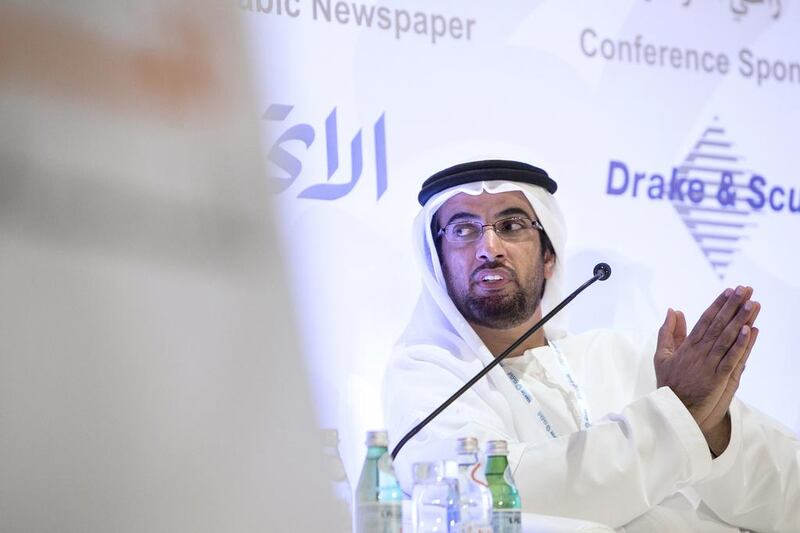Al Gharbia officials are turning to investors to develop fish farms in a bid to avert a food security crisis because of overfishing.
“We realised that overfishing and marine environment deterioration are threatening this sector,” said Khalifa Ahmed Al Ali, managing director of the Abu Dhabi Farmers’ Services Centre. “Fish farms will be a solution to the reduction in our reserves of fish.”
The ADFSC has identified 25 to 30 farms that produce fish, but there are numerous others that are not licensed.
“Among our recommendations is to license them because they are included in our total production of fish,” he added.
Most of the fish produced in these farms are river fish and have a high tolerance for salinity of water and temperature.
“There is another project for a fish farm who recently received a license and came to our authority,” he said. “They want to produce sea bream and hammour fish by having nets to harvest them in the sea.”
Last November, Abu Dhabi’s Mussafah area welcomed the world’s largest and most technologically advanced aquaculture farm. The 56,000 square metre Emirates AquaTech Caviar Farm will produce Siberian caviar and sturgeon fish meat.
The farm in Abu Dhabi will have a maximum annual production capacity of 35 tonnes of caviar and 700 tonnes of sturgeon meat.
Asmak, the international fish farming holding company, in November announced plans to introduce land-based salmon farming in Abu Dhabi’s Western Region, the first such facility of its kind in the Arabian Gulf.
The company admitted that the Western Region is a “challenging environment” for salmon farming. Water temperatures need to be maintained at 13°C, whereas local sea waters can reach close to 40°C.
The Abu Dhabi-based company claimed that the new plant will cut the cost of salmon in the UAE by 30 to 50 per cent, reducing reliance on imports from markets such as Norway and Ireland.
“The Western Region is a virgin land and can be a hub for food industries,” Mr Al Ali said.
“There are many prerequisites that make it attractive for investment into this sector: giant land mass, low-cost energy, long coastal line and shares a border with Qatar and Saudi Arabia,” he added.
halsayegh@thenational.ae
* With additional reporting by John Everington
Follow us on Twitter @Ind_Insights





